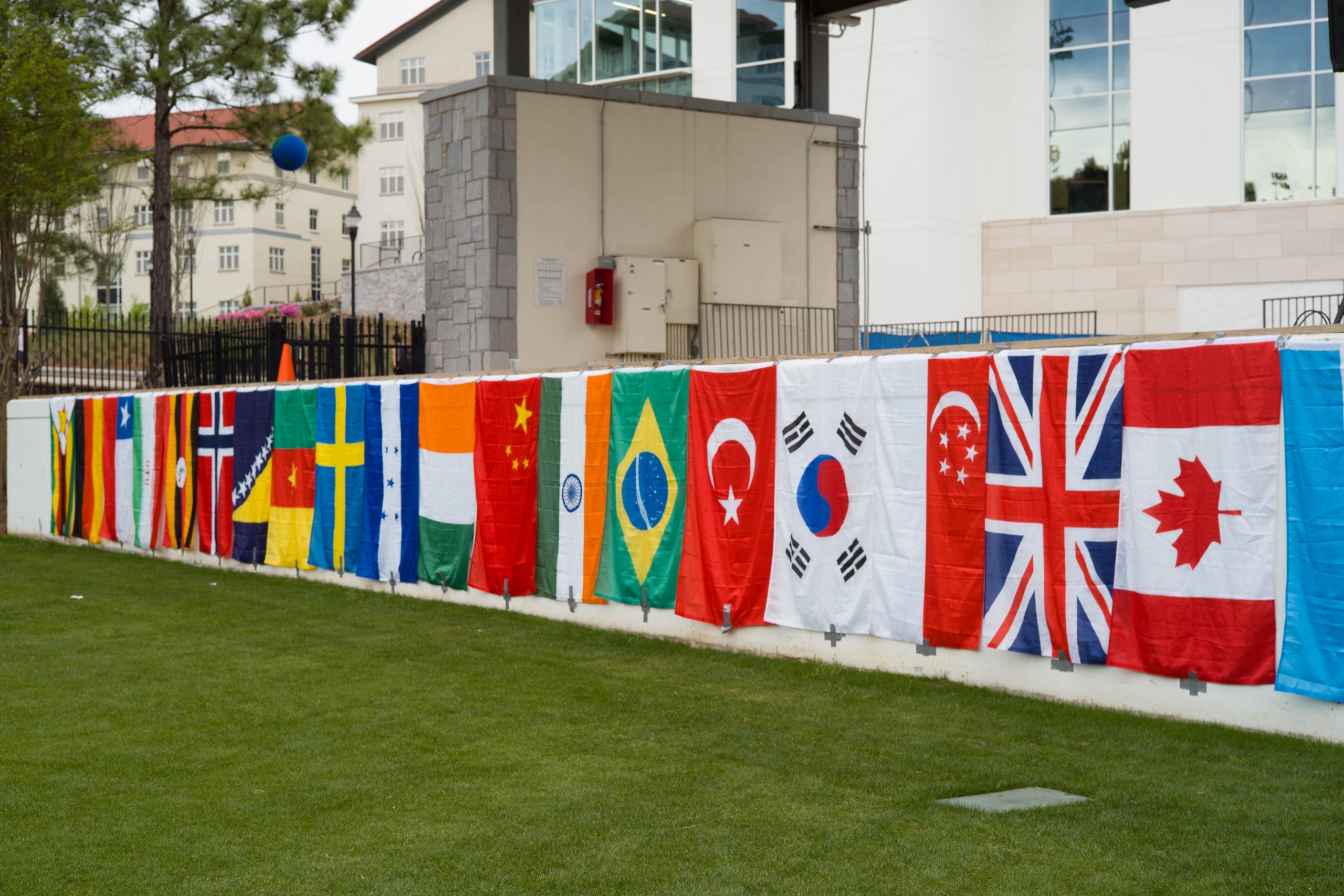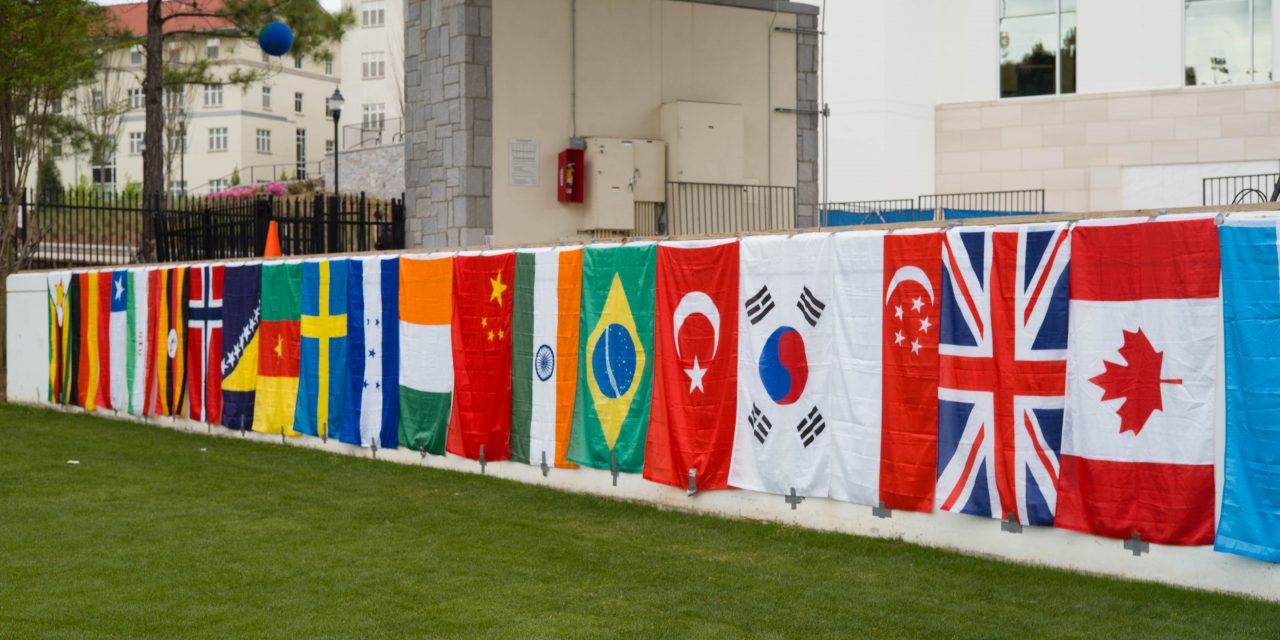Following the Trump administration’s recently announced ban on WeChat, Chinese international students expressed fear that the ban on WeChat could lead to being completely cut off from family and friends back home. However, since Sept. 20, the ban on WeChat and another Chinese-owned app, TikTok, has been halted.
The Commerce Department cited national security concerns about WeChat and TikTok, a video-sharing platform owned by a Chinese company called ByteDance, arguing that American users’ data could be directly available to the Chinese government. A federal judge blocked the removal of TikTok from the app store on Sept. 27, but the company must sell its U.S. operations to an American company by Nov. 12.
“The policy itself was not clear,” Shengkai Xu (22C) said. “I knew that TikTok was the app more likely to be banned, while no one was expecting WeChat to be prohibited.”

Chinese international students expressed fear that the ban on WeChat could lead to being completely cut off from family and friends back home./Chloe Luo, Contributing
If the removal had been approved, TikTok would have become unavailable in the app stores, and, even with an existing account, users would not have been able to update the app or reinstall the app if they had deleted it from their devices. However, current users would still have access to the app. This is the same for WeChat users who have the app already; they would not be able to update the software nor utilize its other tools like making mobile payments with people in China if the ban were to go into effect. Businesses who use WeChat would face the same problem.
WeChat’s ban was blocked by Magistrate Judge Laurel Beeler’s injunction on Sept. 20, which bars President Donald Trump’s attempt to make the app unavailable on the app store and ensures that the Chinese company Tencent Holdings can continue business transactions with other American businesses. These businesses provide the internet-hosting services needed for the app’s infrastructure to function properly in America.
“I think what makes this ban especially hurtful is that it comes after a series of attacks against the Chinese this year, e.g., racist terms to refer to COVID-19, ending the Fulbright program in China, targeting international students and their visas for online coursework, closing down the Chinese consulate in Houston,” Assistant Professor of Chinese Jia-Chen Fu said.
Beeler granted the motion because she believed the removal of the app violated the First Amendment and the due process clause of the Fifth Amendment. The ban would also hurt the well-being of the plaintiffs, the U.S. WeChat User Alliance, a group of Chinese Americans fighting the ban, as it is the “primary means of communication” for the “Chinese community,” Beeler wrote.
“It’s like a symbol for communication or connection with home,” Star Liu (21C) said, pointing to first-year student concerns. “For some of us, that’s the only way we can communicate with our families. It’s their first time away from home coming from China. It could actually cut off communication.”
Other mainstream messaging apps such as Facebook Messenger or Gmail are unavailable in China. Additionally, WeChat not only performs texting and calling communication but also functions as a way to transfer money, post and share photos like Instagram, and help Chinese employees grow their professional network.
“WeChat has so many features,” Alan Li (23C) said. “We use it to socialize and find jobs. There’s no Messenger because there’s no Facebook and there’s no Instagram. We have something called Telegram, but I never use it. Maybe we can use Line, but that’s probably only usable if we use [a virtual private network] back in China.”
Kai Guan (20Ox, 22C) echoed these sentiments and nodded to WeChat’s immense user network.
“There are some other apps that we can use for communication such as QQ,” he said. “However, none of these alternatives is comparable with WeChat on popularization and convenience.”
TikTok has been in negotiations with Oracle and Walmart to purchase its American operations in order to appease the Trump administration’s desired restrictions. Both American companies would hold 20% of the stake, and ByteDance would hold the remaining until the company is publicly offered next year.
“It seems as if all the concerns regarding national security and the possibility of the Chinese government gaining access to American user data has become less critical now that there is a deal to create a new U.S.-based entity called TikTok Global,” Fu said.
As of Sept. 27, TikTok will function without problem until a full court hearing that has not been set yet. The judge stated Trump’s case provided “scant evidence” that TikTok intervened with national security.
“Current U.S.-China relations are strained, to say the least,” Fu said. “Recent actions taken by the U.S. government suggest a more aggressive approach that doesn’t have any qualms against using people as pawns in a foreign policy chess match.”
Ulia (she/her) (24C) is from northern Virginia, studying Spanish & Portuguese. She also writes for the Wheel's news section and Emory In Via, Emory's Christian academic journal. Additionally, Ahn is involved in campus residence life and likes to bake in her free time.






